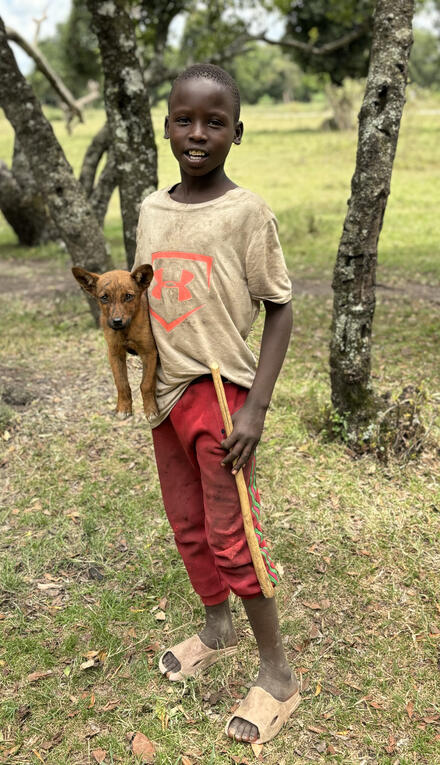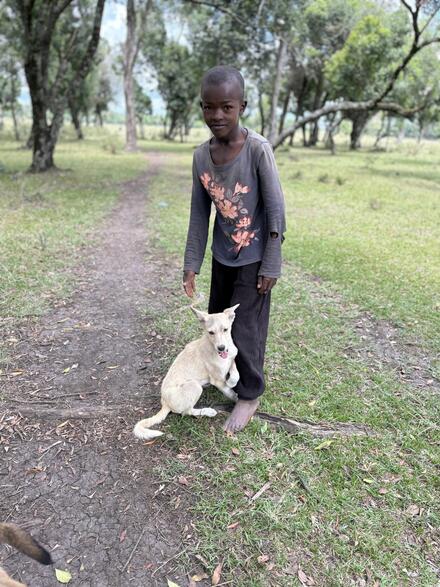The Communities Against Rabies initiative: building global capacity from the ground up
The Communities Against Rabies initiative was launched just over one year ago. This initiative to grow a global community-level workforce and network of stakeholders focused on rabies elimination and improved dog health and welfare has progressed in leaps and bounds since its inception. See what has been achieved and how you can get involved.
What is the Communities Against Rabies initiative?

Given competing priorities and limited resources across endemic regions, many national governments lack the capacity to deliver effective rabies elimination strategies using only government resources. Yet, there are tens of thousands of dedicated community actors working on rabies elimination efforts, including animal welfare NGOs, private veterinary practices, private human health facilities, academic institutions, student groups, and many others. However, these stakeholders have historically been ignored and deemed insignificant in the larger picture, given their limited capacity and the complexity to engage them.
The Communities Against Rabies (CAR) – the first ever initiative to focus on grassroots level stakeholders for rabies elimination – is a GARC initiative established to assist and empower those community-led actors with their rabies control and elimination efforts to strengthen the ‘last mile’ of rabies elimination.
To do this, the CAR initiative seeks to strengthen the capacity of these actors and recognizes and unites them through a collaborative community-level network focused towards action and the EndRabiesNow platform, creating an extensive network of organizations and actors who have the local knowledge and joint plans to achieve sustainable rabies elimination efforts. Best practice ensures that they are aligned and in support of the National Strategic Plan for rabies elimination in their country.
The capacity strengthening and engagement can commence at the individual, organizational or community level with the individual elements coming together to provide a comprehensive program of support, which is greater than the sum of its parts:
- Individuals: Individuals of the CAR initiative are Dog Health Champions – a dog-health focused workforce for rabies elimination.
- Organizations: Organizations, including NGOs, private sector, local government, academia and others, are Rabies Centers of Excellence (RCE) – model local stakeholders that work at the highest standards to drive rabies elimination in their communities.
- Communities of Action: Facilitated by shared best practice, planning and technical tools, multiple Rabies Centers of Excellence (RCEs) come together to jointly plan and deliver community-led rabies elimination efforts, improving collaboration, One Health, and delivering more efficient use of limited resources.
What has the Communities Against Rabies initiative achieved?
The CAR initiative has made significant progress over the course of the last year. With the drive from local stakeholders and individuals, the CAR initiative has already surpassed many milestones as outlined below.

Individual:
Dog Health Champions are a workforce of individuals who are passionate about, or responsible for, promoting and driving dog health and welfare in their communities, with a specific focus on rabies elimination. This year, more than 1000 individuals have become recognized Bronze Dog Health Champions by completing the required courses, while another 100 have continued on to become recognized Silver Dog Health Champions (despite the fact that the Silver DHC tier was only recently launched in June this year). Therefore, together, we are building a community-level workforce to drive rabies elimination and improved dog health and welfare in communities that are most at-risk.
Organizations – Rabies Centers of Excellence (RCEs):
South Africa, Nepal and Sri Lanka were the first three countries where the CAR initiative was launched and where the first Rabies Centers of Excellence (RCEs) were recognized. Since the launch of the initiative, we have recognized 11 RCEs from these three countries. We have also recently expanded the program globally, so that deserving and leading organizations around the world can be recognized as RCEs. While this was only announced in October, we have already recognized an additional 6 RCEs hailing from Uganda, Kenya, Ghana and India, taking the total up to 17. The RCEs are considered the benchmarks for rabies elimination efforts in their communities and countries, having been recognized for their high-quality rabies elimination efforts. By recognizing these RCEs, we are building a global network of capable community-level stakeholders that can better coordinate and collaborate to achieve rabies elimination in concert with government efforts.
To highlight the exceptional work of these organizations, we launched the End Rabies Now Instagram account that is entirely dedicated to promoting the work of the RCEs. Furthermore, we created a Global Map that shows the RCEs around the world and gives information about the number of recognized Dog Health Champions in each country too! This enables these RCEs to be easily identified in any country – promoting collaboration and support from other likeminded stakeholders.
We will continue to engage with individuals and leading local level organizations and stakeholders driving rabies elimination efforts so that the Communities Against Rabies initiative can continue to grow into a truly global effort – driven by you – to achieve rabies elimination from the ground up!
If you are an individual, group or organization working towards rabies elimination, we encourage you to get involved in the CAR initiative. Become a Dog Health Champion and meet the criteria for your organization to become a recognized RCE. Become part of the global grassroots movement to eliminate rabies! Learn more here.